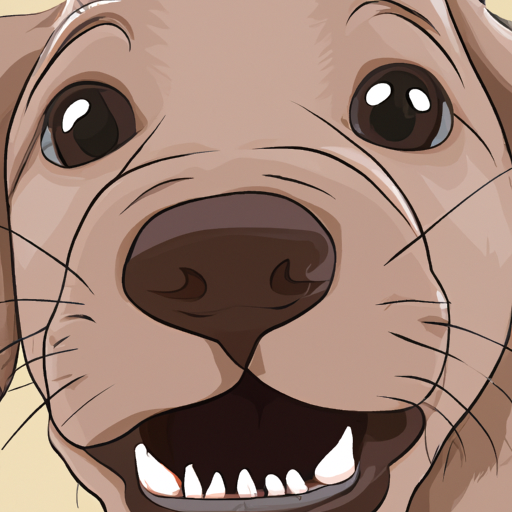As a caregiver, understanding the nuances of your puppy’s dental health is crucial. In this guide, we’ll explore everything you need to know about puppy canine teeth, from development stages to dental care tips.
1. Understanding Puppy Teeth Development
Just like humans, puppies are not born with teeth. They start teething around three weeks old.
- Deciduous Teeth: These are the first set of teeth your puppy will have, also known as ‘milk teeth’. They are 28 in total.
- Permanent Teeth: At around 4 months, your puppy will start losing their milk teeth, making way for their permanent teeth, which are 42 in total.
2. Recognizing the Types of Puppy Teeth
Puppies have four types of teeth:
- Incisors: The small front teeth used for nibbling.
- Canines: These are the long, pointed teeth that puppies use to tear food.
- Premolars: Located behind the canines, they help in chewing.
- Molars: The backmost teeth used for grinding food.
3. When Do Puppies Lose Their Canine Teeth?
Puppies usually start losing their deciduous teeth between 3 to 7 months of age, starting with the incisors.
| Type of Tooth | Approximate Age at which it Falls Out |
|---|---|
| Incisors | 3-4 months |
| Canines | 4-6 months |
| Premolars | 5-6 months |
| Molars | 6-7 months |
4. Potential Problems with Puppy Canine Teeth
Just like human teeth, puppy teeth can also encounter problems. Some common issues include:
- Retained Deciduous Teeth: This happens when a puppy’s deciduous teeth do not fall out as the permanent teeth grow in.
- Malocclusion: This is when the teeth don’t align properly leading to problems in eating or injury to the mouth.
- Periodontal Disease: This is caused by plaque and tartar build-up leading to gum disease and tooth loss.
5. Caring for Your Puppy’s Canine Teeth
Proper dental care is vital for your puppy’s overall health. Here are some tips:
- Brush Regularly: Use a soft toothbrush and dog-friendly toothpaste.
- Invest in Dental Toys: Chewing helps in naturally cleaning your puppy’s teeth.
- Regular Vet Check-ups: Regular dental check-ups can catch any dental issues early.
6. Feeding for Dental Health
Your puppy’s diet can also impact their dental health. Hard kibble can help keep teeth clean, while certain dental chews can contribute to reducing plaque and tartar.
7. Training Your Puppy for Oral Health Care
Training your puppy to have their mouth handled can make dental care tasks easier. Start slowly and make the experience positive, using treats as rewards.
8. FAQs
Q: What if my puppy’s deciduous teeth don’t fall out?
A: This is a condition called ‘retained deciduous teeth’. It’s important to consult your vet as the deciduous teeth may need to be extracted.
Q: How often should I brush my puppy’s teeth?
A: Ideally, you should brush your puppy’s teeth daily, but if that’s not possible, aim for at least three times a week.
Q: Can puppies get cavities?
A: While rare, puppies can get cavities. Regular brushing and a healthy diet can help prevent this.
Q: What should I do if my puppy broke a tooth?
A: Broken teeth can be painful and can lead to infection. If your puppy breaks a tooth, it’s important to consult the vet immediately.
Understanding your puppy’s dental development and care is crucial for their overall health and longevity. As a caregiver, your knowledge and actions can make all the difference in giving your puppy a healthy, happy life.



